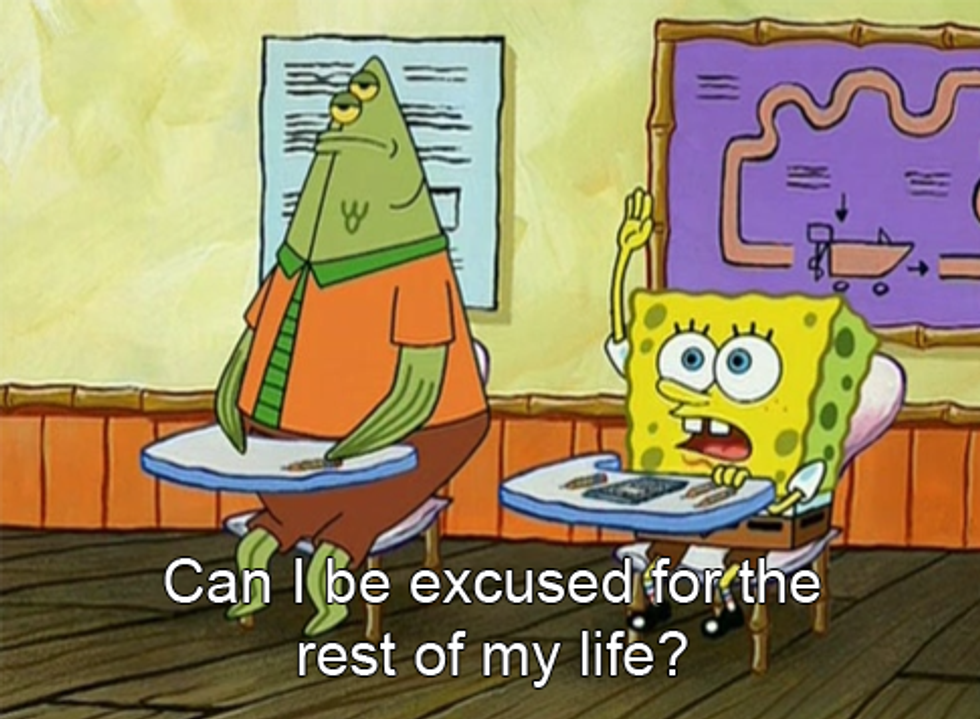If you have not heard about TED you are missing out.
"TED is a nonpartisan nonprofit devoted to spreading ideas, usually in the form of short, powerful talks. TED began in 1984 as a conference where Technology, Entertainment, and Design converged, and today covers almost all topics — from science to business to global issues — in more than 110 languages."
"TED Talks are influential videos from expert speakers on education, business, science, tech, and creativity, with subtitles in 100+ languages."
I love listening to speakers on TED Talk because they speak with so much passion, you seriously learn new things, new ideas that you have probably never thought about and things about yourself that you have been struggling to understand. The people giving the talks are intelligent and spend so much time doing research in order to get the best information.
As college students, we go through different situations while in school. Sometimes we struggle with understanding how our major might work out. We change majors many time different times trying to figure out what is good for us, and sometimes we just want to give up, because nothing seems to be working out the way we want it to. These TED Talks I am going to list should come as encouragement and a reason for us to keep working and pushing hard to succeed. When you listen to these talks, you will hear people's success stories, how hard it was, and how they made. Some will give you information that will help you understand why you are going through some hard times, how you can be a solution and what to do to make the world and future a better place.
1. Why Some Of Us Don't Have One True Calling
What do you want to be when you grow up? Well, if you're not sure you want to do just one thing for the rest of your life, you're not alone. In this illuminating talk, writer and artist, Emilie Wapnick, describes the kind of people she calls "multi-potentialities" — who have a range of interests and jobs over one lifetime. Are you one?
2. How To Gain Control Of Your Free Time
There are 168 hours in each week. How do we find time for what matters most? Time management expert, Laura Vanderkam, studies how busy people spend their lives. She's discovered that many of us drastically overestimate our commitments each week while underestimating the time we have to ourselves. She offers a few practical strategies to help find more time for what matters to us, so we can "build the lives we want in the time we've got."
3. How To Speak Up For Yourself
Speaking up is hard to do, even when you know you should. Learn how to assert yourself, navigate tricky social situations and expand your personal power with sage guidance from social psychologist, Adam Galinsky.
4. What I Learned From 100 Days Of Rejection
Jia Jiang adventures boldly into a territory so many of us fear: rejection. By seeking out rejection for 100 days — from asking a stranger to borrow $100 to requesting a "burger refill" at a restaurant — Jiang desensitized himself to the pain and shame that rejection often brings and, in the process, discovered that simply asking for what you want can open up possibilities where you expect to find dead ends.
5. Asking For Help Is A Strength, Not A Weakness
We all go through challenges — some you can see, most you can't, said Michele L. Sullivan. In a talk about perspective, Sullivan shares stories full of wit and wisdom and reminds us that we're all part of each other's support systems. "The only shoes you can walk in are your own," she said. "With compassion, courage and understanding, we can walk together, side by side."
6. A Few Ways To Fix A Government
Charity Wayua put her skills as a cancer researcher to use on an unlikely patient: the government of her native Kenya. She shares how she helped her government drastically improve its process for opening up new businesses, a crucial part of economic health and growth, leading to new investments and a World Bank recognition as a top reformer.
7. The New American Dream
For the first time in history, the majority of American parents don't think their kids will be better off than they were. This shouldn't be a cause for alarm, said journalist, Courtney E. Martin. Rather, it's an opportunity to define a new approach to work and family that emphasizes community and creativity. "The biggest danger is not failing to achieve the American Dream," she said in a talk that will resonate far beyond the U.S. "The biggest danger is achieving a dream that you don't actually believe in."
8. A Smart Loan For People With No Credit History (Yet)
Trust: How do you earn it? Banks use credit scores to determine if you're trustworthy, but there are about 2.5 billion people around the world who don't have one to begin with — and who can't get a loan to start a business, buy a home or otherwise improve their lives. Hear how TED Fellow, Shivani Siroya, is unlocking untapped purchasing power in the developing world with InVenture, a start-up that uses mobile data to create a financial identity. "With something as simple as a credit score," said Siroya, "we're giving people the power to build their own futures."




















